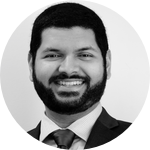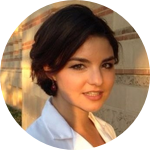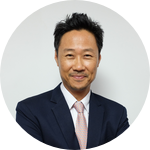About This Project
Neurological diseases are responsible for up to 6.8 million deaths per year, a proportion of which are neurosurgical. There is a notable lack of information regarding our current capacity to respond to the burden of neurosurgical disease, especially in low and middle income countries (LMICs). We aim to quantify the current neurosurgical workforce per country with attention to the ability to provide standard of care as defined by the availability of equipment and training capacity.
Ask the Scientists
Join The DiscussionWhat is the context of this research?
Surgery continues to not be considered a health priority worthy of investment in many low income countries. Neurosurgery has been even further overlooked, often deemed too complex and costly for low-income settings. However, neurological diseases affect up to 1 billion individuals worldwide, and are responsible for up to 6.8 million deaths per year. Global Burden of Disease figures estimate traumatic brain injuries (TBIs) to be responsible for 11.2% of total global disability adjusted life years (DALYs), majority of which are in LMICs. Thus, the need for neurosurgical care is evident worldwide, especially within low- and middle-income contexts where the burden is arguably greater.
What is the significance of this project?
The Global Neurosurgery Workforce Interactive Mapping Project is a joint collaboration between the WHO and WFNS, to better pinpoint the areas around the world most in need of neurosurgical support. Currently, little information is known about access to neurosurgical services worldwide, especially in low and middle-income countries (LMICs). Additionally, there is a notable lack of information regarding our current baseline capacity to respond to the burden of neurosurgical disease, especially in LMICs, with existing estimates of the neurosurgical workforce, equipment and neurosurgical training capacity in LMICs more than a decade old. If we are to create targeted solutions to increasing access to neurosurgery worldwide, we must first understand the current baseline state.
What are the goals of the project?
Our data collection will proceed in phases. We are currently conducting Phase 1, which will gather neurosurgeon density and distribution, as well as basic neurosurgical capacity and training for each country. Phase 2 will focus on gathering information on the types and complexity of neurosurgical operations that are performed in low and middle-income countries. Finally, we want to make our data accessible to the world through an interactive website that will not only demonstrate our current state of neurosurgical care provision worldwide, but also enable surgeons or non-surgeons across the world can input data directly, so we can better understand how access to neurosurgical care is changing and what are the areas still in greatest need.
Budget
We are currently using students and associates from the Harvard Program in Global Surgical and Social change to collect data on access to neurosurgical services – personnel, imaging and operative equipment - from collaborators worldwide. Once the data is collected, we plan to use Redivis, a Stanford based visualization platform, to generate detailed and compelling maps of access to neurosurgical services of various complexities worldwide. We would like to subsequently make this project accessible to the world, and thus plan to hire to a web-developer to build a website that makes the data interactive, that surgeons across the world (or non-surgeons, health professionals, policy people) can input data directly, thus making this data accessible to everyone in real time. This information will enable the World Health Organization and the World Federation of Neurosurgeons to pinpoint where help in increasing access to neurosurgical services is most desperately needed.
Endorsed by
Meet the Team
Team Bio
Our team is made up of members of the Harvard Program in Global Surgery and Social Change (PGSSC).
The PGSSC is a collaborative effort between the Harvard teaching hospitals, Harvard Medical School/ Department of Global Health and Social Medicine, Boston Children’s Hospital (BCH) and Partners In Health (PIH). Our objective is to advocate for Universal access to safe, affordable surgical and anesthesia care when needed.
Maria Punchak
I am a 2018 M.D. candidate at UCLA. I was born in Russia, and grew up in Philadelphia. After graduating magna cum laude from Georgetown, and obtaining my MSc in epidemiology from the London School of Hygiene and Tropical Medicine. I have researched sociodemographic determinants of TB knowledge in Bolivia, pediatric ICU outcomes in Mozambique and worked with Last Mile Health in Liberia to bring primary care services to remote villages. My research with PGSSC focuses on neurosurgical capacity in Uganda and worldwide, and I hope to continue advancing the field of global neurosurgery during my career.
Kee Park
I am a neurosurgeon who has devoted last 8 years to improving neurosurgical care in the developing world. After teaching neurosurgery to the first batch of residents in Addis Ababa, Ethiopia, I moved to Phnom Penh, Cambodia to help train the residents at the newly established neurosurgery program. I am passionate about making sure everyone is able to receive basic neurosurgical care wherever and whenever it is needed.
Lab Notes
Nothing posted yet.
Project Backers
- 4Backers
- 1%Funded
- $39Total Donations
- $9.75Average Donation


